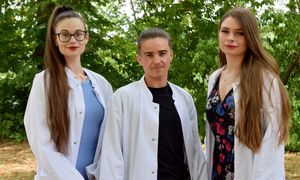Psychiatry International
We encourage applications by doctoral students and postdocs from abroad, as we are convinced that not only we as hosts and the international researchers as guests, but ultimately also our patients will profit from our joint research.
At present, we have scientists with ukrainian and russian, chinese and taiwanese background at our department. They work together in an atmosphere of mutual respect and friendship.
Everyday we thus witness that this is possible between humans of good will. We hope that this soon will be possible again not only at our department, but also in and between their respective countries.
Below, you can find some of our current and former guests.
Benjamin Aboagye (2014-2018)

Research Interests
Neurobiological basis of affective disorder, especially depression disorders using mice.
Research support
- DAAD - Ministry of Education, Ghana
- Laboratory for Translational Neuroscience (Prof. Dr. K.-P. Lesch)
Reason for coming to Würzburg
I have great interest in studying the role played by serotonin in the pathogenesis of Depression and Anxiety disorders. The myriad of contributions made in this field, with regards to research publications, by Prof. K.-P. Lesch and his research team made me consider University of Würzburg as the ideal destination for my study. I hope to increase my knowledge and understanding of neurobiology of affective disorders as I continue to work in the Laboratory for Translational Neuroscience, UoW.
Judit Alhama-Riba (2018-2020)
Research Interests
Molecular neurobiology of neuropsychiatric diseases
Research support
- master program "Translational Neuroscience", Elitenetzwerk Bayern
Reason for coming to Würzburg
I wanted to study this master program to expand my knowledge in the neuroscience field. I joined Prof. Lesch’s lab as a HiWi and, since I am very interested in the research carried out and the working environment is very nice, I will also perform my master thesis in this lab.
Dr. Peter Almos (2018-2019)
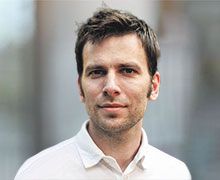
Research Interests
Neural networks in the background of psychiatric disorders, psychiatric genetics
Research support
- Eat2beNICE EU
Reason for coming to Würzburg
I was coming to Würzburg to work more closely on a joint project of Prof. Lesch and EMBL. My aim is to examine how genetic variation (e.g. the copy number variation of the neural glucose Transporter) affect neural networks and behaviour like cognitive impulsivity. We are using in vitro and animal models to address this goal.
Dr. Manish Asthana (2011-2013)

Research Interests
Social, emotional, and cognitive aspects of human cognitions
Psychophysiology of pathological learning and memory
Ethnicity & gender difference
Non-invasive brain stimulation methods (tDCS, TMS)
Research support
- GK Emotion
Reason for coming to Würzburg
To attain doctoral degree and to pursue the cutting edge research in the field of psychology and cognitive science.
In 2013, he received his PhD. in Life Science from University of Wuerzburg. In 2014, he joined Social and Cognitive Neuroscience Laboratory, Mackenzie Presbyterian University (Brazil) as a postdoctroal research fellow. In 2016, he started his second postdoctoral research position at Department of Humanities and Social Sciences, Indian Institute of Technology Kanpur (India). In 2017, he started teaching “Cognitive Science” in an Engineering Institute (India) as an assistant professor.
In 2019, he moved to the Department of Psychology, Southwest University (China) as an associate professor. He researches pathological learning and memory, non-invasive brain stimulation (tDCS, TMS), and social-cognitive aspects of human cognitions. Other highly interesting fields of research to him were investigations of early biomarkers for anxiety and related disorders, e.g. startle, skin conductance response (SCR), heart-rate variability, blood pressure, etc. for the assessment of early detection of anxiety or related disorders. He can be contacted at AsthanaKM (at) gmail (dot) com.
David Diouf (since 2021)

Research Interests
I'm passionate about Fundamental Neuroscience, exploring the brain's physiological and molecular mechanisms. My research spans healthy and neurodevelopmentally disordered subjects, employing stem cells and cellular models for psychiatric disorders. I'm committed to unlocking the brain's mysteries for better solutions and improved lives.
Research support
- Marie Curie-funded Ph.D. fellowship from the European Government
Eat2beNICE EU
- Serotonin & Beyond EU
Reason for coming to Würzburg
I chose Wuerzburg for the invaluable opportunity to collaborate with top-tier professors in Europe, fostering a broad academic network with universities in Europe.
Andrea Forero (2015-2020)
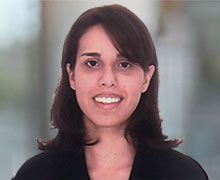
Research Interests
Neurobiology of psychiatric disorders, behavioral study of animal models for neuropsychiatric disorders.
Research support
- Doctoral fellowship from the Graduate School of Life Sciences (GSLS), University of Würzburg
Reason for coming to Würzburg
I was looking for an international environment that would focus on collaborative and integrative work in the molecular and cellular basis of neuropsychiatric disorders. For this reason I decided to join Prof. Lesch’s group, since its research interests are of great interest to me, and it places great importance in woking together with other research groups in Europe and though out the world.
Nikita Gorbunov (since 2021)
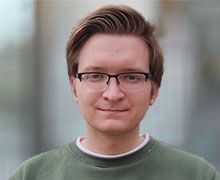
Research Interests
Mouse models of psychiatric diseases (such as ADHD), cellular neurobiology, optogenetics as a method of manipulation of behaviour, disorders associated with the disruption of the serotoninergic system.
Research support
- Research Support
- GK2660-B3 DFG
Reason for coming to Würzburg
The opportunity to perform my PhD project in the laboratory of Molecular Psychiatry is a chance to learn widely used wet lab methods and novel methods of optogenetics.
Daniël van den Hove, MD, PhD (Assistant Professor, since 2012)

Research Interests
Neurobiology of Psychiatric Disorders, Developmental Neuroscience, Gene x Environment interactions, Epigenetics
Research support
- SFB TRR 58
- Internationale Stichting Alzheimer Onderzoek (ISAO)
Reason for coming to Würzburg
As a collaboration between Maastricht University (The Netherlands) and the University of Würzburg, Daniël van den Hove is investigating the role of gene x environment interactions, and their underlying epigenetic mechanisms, in the pathophysiology of various psychiatric disorders like major depression, panic disorder and Alzheimer's disease.
Hsing-Ping Ku (PhD student 2016-2022)

Research Interests
Neurobiology and molecular mechanisms of neurodevelopmental disorders
Research support
Reason for coming to Würzburg
I joined Prof. Lesch's group as a master's student since I am genuinely interested in the research conducted by his lab. It has been a wonderful experience working on exciting science within a supportive environment. Therefore, I would like to keep gaining my knowledge and broadening my experience in Würzburg.
Dr. Sabina Kucukalić (2014)

Research Interests
Currently we are working on a project that joined three south-eastern Europe countries (Bosnia and Herzegowina, Croatia and Kosovo) with Wuerzburg. The present project for the first time aims at an integrative investigation of the role of MAO-A related (epi-)genetic variation in the pathogenesis of PTSD and/or the biological mediation of traumatic events. Further my interests reaches into the field of child and adolescent psychiatry.
Research support
- DAAD
- Department of Psychiatry, University Clinical Center Sarajevo
Reason for coming to Würzburg
Wuerzburg is a city that inspires regarding its geography and people like our colleagues at the clinic for psychiatry, psychotherapy and psychosomatic who do such inspiring research. Our conjoined research project has given me the opportunity to get an insight into basic research, to get to know new areas of medicine and to change my view on pathogenesis of psychiatric diagnosis especially on PTSD, which people usually relate just to an traumatic event thinking that biology is not involved. I have learned a lot about people, how a larger group of different persons from different places can work together with the goal to make steps forward into understanding the multidimensionality of psychiatric disorders. Our research focus have been people who suffered trauma that did or did not develop PTSD afterwards and how their genetic constitution affects the development of symptoms. My own focus has been the genetic of epigenetic of two interesting genes: the OXTR and BDNF gene and first results regarding those two are just about to be announced. Being in Wuerzburg, attending spring schools, being a part of a research project with the Wuerzburg team has been an extremely motivating time for me personally and professionally. I keep such beautiful memories and I hope that we will have the opportunity to work together on new research projects and ideas.
Olga Rivero Martín (2010-2020)
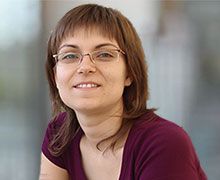
Research Interests
Cellular neurobiology, the mouse as an animal model for psychiatric diseases (such as ADHD), role of cell adhesion proteins in brain development and function
Research support
- Postdoctoral Fellowship from the government of Spain
Reason for coming to Würzburg
It is a great opportunity for me to enrich my scientific background in neurobiology, and also to enjoy the beautiful city of Würzburg.
Shinji Ono, MD (2013-2014)

Research Interests
Genetics of inherited diseases. I had worked at Nagasaki University Hospital, Japan, as a researcher as well as a clinical doctor in psychiatry. During working in Japan, I have researched the genetics of several diseases such as paroxysmal kinesigenic dyskinesia, schizophrenia and autistic spectrum disorders.
Research support
- Nagasaki University Graduate School of Biomedical Sciences
- SENSHIN Medical Research Foundation
- SFB TR 58
Reason for coming to Würzburg
As a collaboration between Nagasaki University and the University of Wuerzburg on the genetics of anxiety disorders and schizophrenia.
Publication
Morimoto Y, Shimada-Sugimoto M, Otowa T, Yoshida S, Kinoshita A, Mishima H, Yamaguchi N, Mori T, Imamura A, Ozawa H, Kurotaki N, Ziegler C, Domschke K, Deckert J, Umekage T, Tochigi M, Kaiya H, Okazaki Y, Tokunaga K, Sasaki T, Yoshiura KI, Ono S. Whole-exome sequencing and gene-based rare variant association tests suggest that PLA2G4E might be a risk gene for panic disorder. Transl Psychiatry. 2018 Feb 2;8(1):41. doi: 10.1038/s41398-017-0088-0.
Ana-Magdalena Pineau (since 2021)
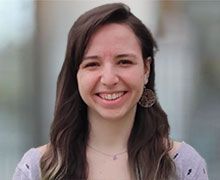
Research Interests
Molecular neurobiology, cellular communication, neurosciences, epigenetics, 2D or 3D culture of neuronal cells
Research support
- Eat2beNICE EU
- GK2660-B3 DFG
Reason for coming to Würzburg
The opportunity to learn Induced Pluripotent Stem cell derived neuronal culture and to use them in order to better understand some brain´s mechanisms.
Yanyan Qi (2018-2020)

Research Interests
- social modulation effect on anxiety / fear
Research support
- DAAD-CSC
Reason for coming to Würzburg
I am interested in Prof. Hein's research direction. And I have joined Prof. Hein's lab in 2018 as a visiting students during my PhD. It was a wonderful experience. So, after graduation, I come here again for my Post-Doctoral research.
Kartik Rai (since 2024)
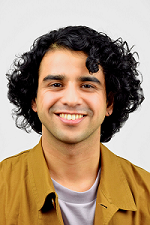
Research
My research focuses on an approach-avoidance conflict paradigm to explore how the presence of a social partner and empathy influence decision-making when faced with facial ambiguity, utilizing a virtual reality (VR) setup.
Academic background and professional experience
I have an academic background in Computer Science and graduated with a Master’s in Mental Health Psychology at the University of Edinburgh, Scotland. Before joining the RTG, I worked as a mental health practitioner in Edinburgh, supporting individuals with complex psychiatric disorders.
Dr. Tatyana Strekalova (since 2016)
Research Interests
Neurobiology, neuropharmacology of emotional and cognitive disturbances associated with stress, dietary interventions, genetic manipulations and neurodegeneration, in various mouse models.
Research support
- SFB TRR 58
Reason for coming to Würzburg
Fortification of the synergy effects of various projects
Evgeniy Svirin (2016-2019)
Research Interests
neurobiology, psychophysiology, and pathogenesis of neurodevelopmental disorders
Research support
- doctoral fellowship from the DAAD
Reason for coming to Würzburg
I came to Würzburg as a guest scientist to gain experience in electrophysiology as part of a collaboration with the Moscow State Medical University. I'm interested in neurodevelopmental disorders, especially attention deficit hyperactivity disorder. Conducting my Ph.D. studies as part of Prof. Lesch's research group is a great experience and opportunity to gain new insights into this field.
Yang Xu (since 2024)

Academic background
I am a doctoral student in the Translational Social Neuroscience Group at the Center for Mental Health. Before that I received a bachelor degree of Arts in Beijing University of Posts and Communications, followed by a three-year master program of basic psychology in Capital Normal University.
Research interests
I have a curious mind for various topics in cognitive neuroscience, with special focuses on decision-making and social cognition. One line of my current research is to investigate the association between social cognition and delay discounting through large open MRI datasets. At the same time, I am also investigating the formation and generalization of empathy, through experiments and computational modeling.
Dr. Yuqing Zhou (2020-2023)

Research Interests
- Multimodal brain imaging (EEG, MEG, fMRI)
- Intergroup relationship
- Social learning
Research support
- DFG
Reason for coming to Würzburg
I joined Prof. Grit Hein's group as a postdoctoral researcher since we share multiple research interests. My PhD thesis focused on the intergroup modulation on face perception, in Würzburg, I could move beyond my research focus from face perception to learning process and do cutting edge research with a group of wonderful scientists. Besides, Würzburg is a beautiful city.
Publication
Zhou, Y., Gao, T., Zhang, T., Li, W., Wu, T., Han, X., & Han, S. (2020). Neural dynamics of racial categorization predicts racial bias in face recognition and altruism. Nature human behaviour, 4(1), 69-87.
Ryszard Sitarz, Kaja Karakula and Alicja Forma (12.07.23-21.07.23)
Research Interests
- Kaja is interested in the effects of herbicide exposure on the general population, as well as their impact on health and possible bioaccumulation in the human body.
- Alicja is performing metallomic analysis of the human eye and selected brain parts associated with vision.
- Ryszard is researching the use of the niacin skin flush test in mental disorder diagnostics.
Research support
- Erasmus+
Reason for coming to Würzburg
- In Summer 2023 the Centre for Mental Health hosted three early career researchers from Lublin, Poland, as part of the Erasmus+ Student Mobility program. Ryszard Sitarz, Kaja Karakula and Alicja Forma spent 9 days in the laboratory learning various research techniques, including pyrosequencing, laser microdissection and cell culture.
Head of Hospital
Prof. Dr. med.
Sebastian Walther M.D.
Head of the Department of Psychiatry, Psychosomatics and Psychotherapy
+49 931 201-77000

